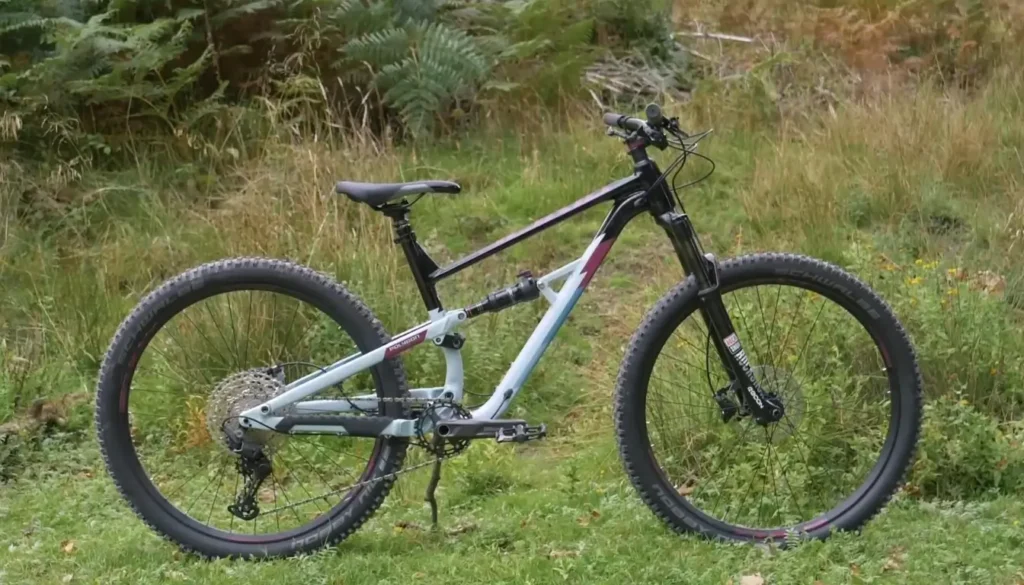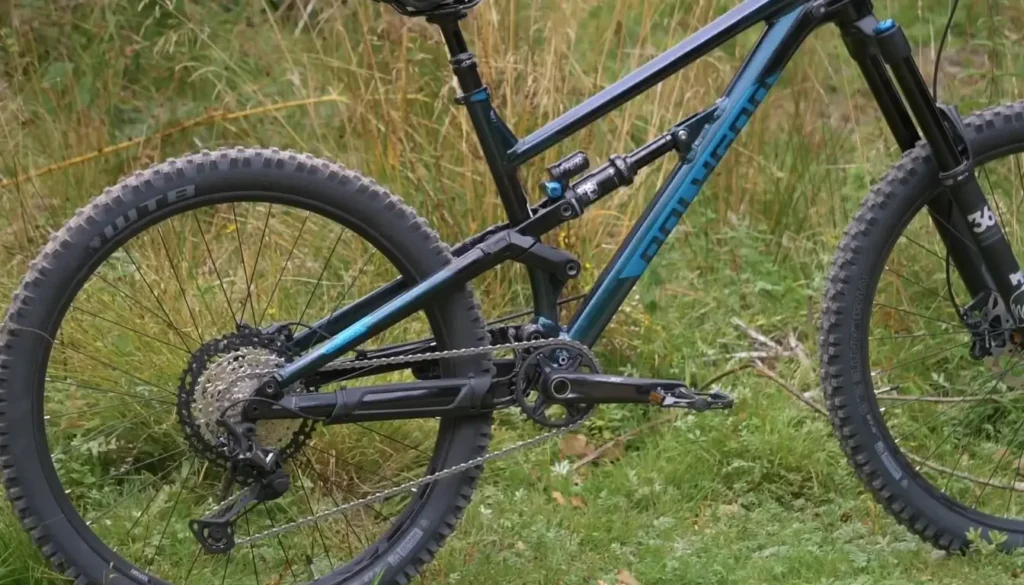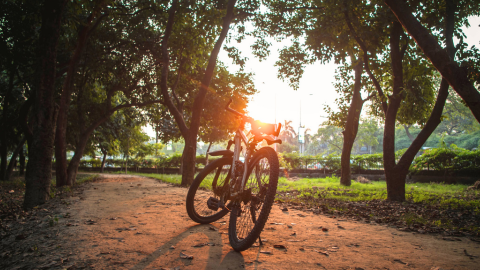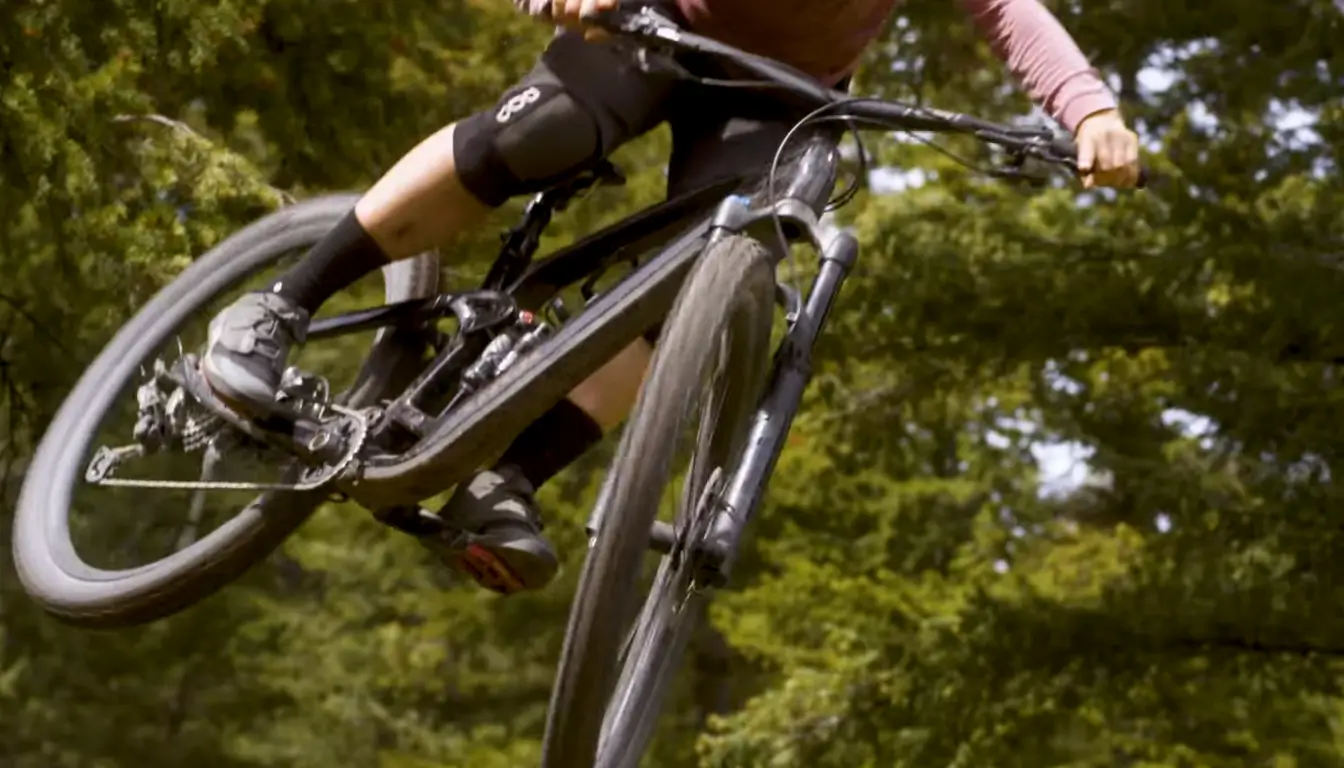A very frequently asked question and the answer is yes. Full Suspension bikes are necessary. If you are someone who likes to ride on challenging terrains and has a passion for high-speed bike riding, then Suspension bikes are the way to go.
This article is a one-stop solution for anyone looking for answers regarding full-suspension bikes.
Full Suspension Bikes
Full Suspension Bikes are constructed with a front suspension fork and rear shock absorbers. The rider is provided with a stable platform that can negotiate a variety of terrains thanks to the cooperation of the two suspension units.
Whereas a rider on a hardtail mountain bike must pick a specific path through a technical stretch of the trail, a rider on a full-suspension mountain bike can glide through the area with more efficiency and much higher velocity. Full Suspension Bikes are also referred to as Dual Suspension Bikes.
Reasons to Choose Full Suspension Bikes

Full-suspension bikes offer much more efficiency and allow riders to course through challenging tracks with much ease and with no significant safety concerns being raised. A Full suspension bike also lets riders utilize their bike to the maximum in terms of speed.
On top of all that, they allow for a more comfortable and smoother ride compared to other alternatives while maintaining performance and efficiency. Minor bumps are easily absorbed by such suspensions, allowing users to cruise with ease.
It is also much easier to control Full Suspension at high speeds, which minimizes the risk of crashing, improving safety and handling performance. In short, Suspension bikes are perfect for bike enthusiasts.
Pros and Cons of Full Suspension Bikes
Pros:
● Increased efficiency and adaptability: Similar to being able to absorb bumps and smoothen them out much better, due to having rear and front suspension lockout, uphill and downhill energy conversion is much more efficient and better
● Enhanced and faster on challenging trails: Easier to ride on challenging trails while climbing rock gardens, navigating roots, and jumping off drops. Full-suspension bikes excel on this type of terrain because the front and rear suspensions work together to soften the impact of bumps and improve stability and handling, which can lead to increased enjoyment.
● Provides comfortable ride and Stability: On the other hand, the suspension of a mountain bike will soften the blows and keep them from being transmitted to your body. Because of this, you might be able to ride for longer and faster without being as worn out.
● Allows riders to achieve higher velocities: Suspension, both front and rear, does a better job of soaking up bumps than a hardtail would, allowing you to ride faster through tough portions of the trail.
● Durable: Full suspension bike frames are made extremely tough and curated to withstand difficult riding conditions on challenging trails with ease, providing riders with a sense of security and durability.
Cons:
● Not very budget friendly: Full Suspension bikes are expensive, with prices above $1,500. Due to being priced higher and having a complex structure that’s also pricier to manufacture, it is also not possible to include high-end parts such as brakes, shifters, etc.
● High Maintenance: Since full suspension bikes have a complex structure and more moving parts, it is expensive and require regular maintenance for a better ride.
● Usually heavy bikes: They generally weigh quite a bit for having quite a few moving parts and a heavier frame. A higher weight is normally not ideal for covering long distances or doing a lot of climbing. It may also affect speed.
● Not ideal for beginners: As they are easy to operate, full suspension bikes discourage new riders from learning some basic biking skills, which might harm them in the long run and is not ideal.
Is a Full Suspension Bike Worth the money?

Yes, a Full-suspension bike is definitely worth the money. With a full suspension bike, the rider can enjoy maximum performance of the bike and also be certain about safety at the same time. Full-suspension bikes allow for smoother rides, even on challenging trails.
Minor bumps and obstacles are absorbed easily by full-suspension bikes, allowing users to ride much more comfortably and efficiently. The matter of safety is also much more covered with a full-suspension bike.
For a bike enthusiast, a full suspension bike will be an extremely pleasing and smart investment due to all the perks these bikes offer, making it the ideal choice.
Is a Full Suspension Bike Better than Other Bikes?

A Suspension bike defeats hardtails and rigid frames with great ease and is definitely better than other types. It is to be expected due to Full Suspension being a new technology compared to hardtails.
Full suspension bikes are a newer technology, provide a much smoother ride than most, let users maximize their bikes’ performance, and challenge difficult conditions, all the while maintaining safety too.
Other bikes may offer similar features but compromise on safety, which clearly is not an issue for Suspension bikes.
Conclusion
The debate between full suspension and hardtail bikes is an easy one. It all boils down to user preferences, needs, and circumstances. If you have the budget and need extra performance, then the full suspension is the way to go.
If not, and you prefer a more casual ride while also not wanting to spend much, then you should pick a hardtail. In the end, both are great in their own ways. I hope this article answers all your questions.
.

I am Ryan Ford, a mountain biking enthusiast who loves to explore the outdoors. I also like to go on adventures with friends and anything else that involves being outside. I love my bike because it gets me out of the house and gives me an opportunity to enjoy nature.

